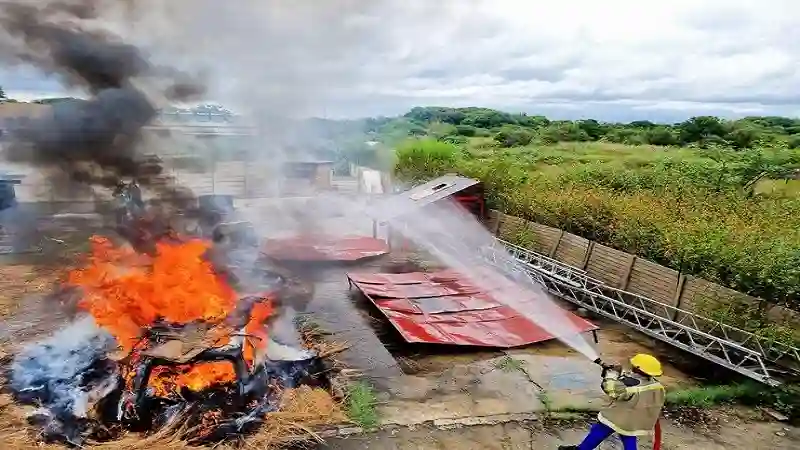Experiencing fire or water damage in your home or business can be overwhelming and traumatic. In Texas, where natural disasters such as floods and wildfires are common, it is crucial to understand the steps necessary for effective recovery and restoration. This article outlines essential information and practical steps for fire and water damage restoration, ensuring that you are equipped to recover quickly and efficiently.
Understanding Fire Damage: Causes and Effects
Fire damage can stem from various sources, including electrical malfunctions, kitchen accidents, and natural disasters. Regardless of the cause, the effects can be devastating, resulting in:
- Structural damage: Fire can weaken the integrity of your building’s structure, making it unsafe.
- Smoke damage: Even after the flames are extinguished, smoke can permeate walls, furniture, and belongings, leading to lingering odors and health hazards.
- Water damage: Firefighting efforts often involve substantial water usage, leading to secondary water damage if not addressed promptly.
Assessing the Damage
It is essential to:
- Ensure Safety: Before entering the premises, ensure the area is safe and stable. Look for structural damages, exposed wires, or gas leaks.
- Document Everything: Take detailed photographs of the damage for insurance claims.
- Contact Professionals: Engage a certified fire restoration expert who can provide an accurate assessment of the damage and guide you on the next steps.
Immediate Steps for Water Damage Restoration
In cases where water damage is involved—be it from firefighting efforts or natural floods—acting swiftly is critical to prevent further damage.
Remove Standing Water
Use pumps, buckets, or wet vacuums to remove as much standing water as possible. The faster this is done, the less chance there is for mold and mildew to develop.
Dry the Affected Area
Open windows and doors for ventilation, and use fans and dehumidifiers to facilitate drying. Removing wet carpets, rugs, and furniture can help expedite this process.
Sanitize and Disinfect
To prevent mold growth and maintain a healthy environment, it is essential to sanitize and disinfect all affected surfaces. Use commercial cleaning agents or a mixture of bleach and water, ensuring to follow safety guidelines during application.
The Fire and Water Damage Restoration Process
The following steps outline the comprehensive process for restoring your property:
Assessment and Inspection
A thorough inspection by professionals will help identify all affected areas, allowing for a tailored restoration plan. This will include evaluating the structural integrity of the property and determining the extent of smoke and water damage.
Removal of Affected Materials
Based on the assessment, the restoration team will begin removing damaged materials, including:
- Debris: Ashes, burnt materials, and charred furniture must be cleared to prevent further issues.
- Waterlogged Items: Carpeting, drywall, and insulation that have absorbed water may need to be discarded.
- Tainted Belongings: Items that cannot be effectively cleaned, such as textiles and upholstery exposed to smoke, should be removed.
Cleaning and Restoration
After debris and affected materials are removed, the cleaning and restoration process begins. This may involve:
- Deep Cleaning: Utilizing specialized equipment and techniques to clean soot and smoke residues from walls, ceilings, and belongings, as well as sewage cleaning to address any contamination issues.
- Odor Removal: Professional-grade deodorizers and ozone generators may be used to eliminate lingering smoke odors.
- Structural Repairs: Repairing or rebuilding walls, roofs, and other structures to restore safety and integrity to your property.
Final Touches and Inspection
Once cleaning and repairs are complete, a final inspection ensures everything is up to standard. This may include checking for moisture levels to prevent future mold growth and ensuring all systems are functional.
Preventative Measures for Future Protection
While dealing with fire and water damage is challenging, taking proactive steps can minimize risks in the future:
1. Install Smoke Detectors and Fire Alarms
These systems can alert you early, potentially saving lives and property.
2. Regular Maintenance
Schedule routine inspections of your property’s plumbing and electrical systems. Preventative maintenance can identify issues before they escalate into disasters.
3. Emergency Preparedness Plan
Develop a comprehensive emergency plan for your home or business. This should include evacuation routes, emergency contacts, and procedures for notifying authorities in case of a fire or flood.
The Importance of Hiring Professionals
While some may consider tackling restoration on their own, hiring experienced professionals is vital. Here’s why:
- Expertise: Professionals possess the knowledge and training to handle complex restoration tasks safely and effectively.
- Time-Saving: Restoration is time-consuming, and professionals can expedite the process, allowing you to focus on recovery.
- Insurance Navigation: Restoration experts often assist with insurance claims, ensuring you receive the coverage you deserve.
Conclusion
Fire and water damage restoration in Texas can be a daunting task, but understanding the steps involved can ease the burden. From initial assessments to final repairs, a systematic approach ensures a thorough recovery. Investing in professional services not only accelerates the process but also enhances the safety and integrity of your property. By taking proactive measures, you can protect your home or business from future disasters, ensuring peace of mind for you and your loved ones.
